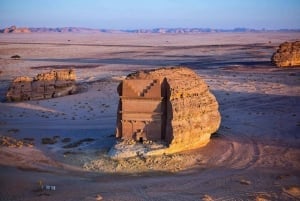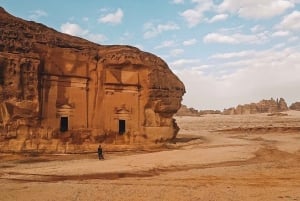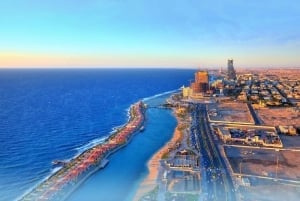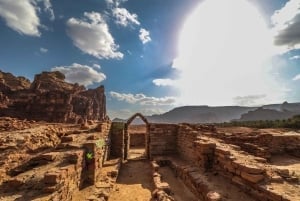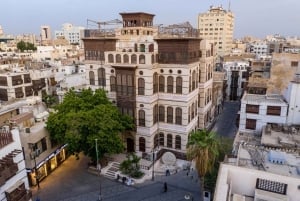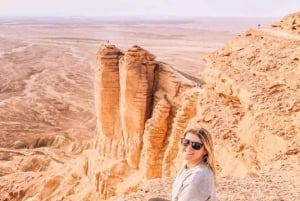The Hajj
Performing the Pilgrimage
Saudi Arabia provides full services for Hajj and Umrah pilgrimages to Mecca and Medina.
Its Ministry of Hajj undertakes all responsibility for the implementation of Hajj services, coordinating variously with private sectors and official authorities in all Muslim countries and countries with Muslim communities. The ministry’s role includes planning, implementation, coordination, supervision and control of all areas related to the pilgrimage and the holy sites. The aim is to provide a safe and healthy passageway to a fully spiritual experience as required of Muslims.
This includes all operational and infrastructure needs related to pilgrimages: setting up approved Hajj travel agents and service providers, various kinds of transport to and from the Kingdom, and between the holy sites, access to information and medical centers, accommodation needs, telecommunications, informational outreach, guides and translators, and much more.
For comprehensive information on all aspects of pilgrimage to Mecca and Medina, and to find approved Hajj travel agents and read the regulations pertaining to the pilgrimages, see the official Saudi website.
About Hajj
The Hajj is the Islamic pilgrimage to Mecca, Saudi Arabia. It is the largest pilgrimage in the world, and Islam’s firth pillar, a religious duty that is obligatory once in a lifetime by every healthy and capable Muslim.
The pilgrimage takes place between the 8th and 12th day of Dhu al-Hijjah, the 12th and last month of the Islamic calendar. The Islamic calendar is a lunar calendar, and therefore eleven days shorter than the Gregorian calendar.
The Hajj is linked to events in the life of the Prophet Muhammad during the 7th century, but the pilgrimage ritual to Mecca stretches back thousands of years to the time of Abraham (Ibrahim).
Hundreds of thousands of pilgrims, men and women, from all ethnic groups, social ranks and cultures converge on Mecca for the week of the Hajj, to perform various rituals. During the Hajj, there are no differences between Muslims. All wear simple unstitched strips of white cloth. All are equal.
As part of the rituals, pilgrims walk counter-clockwise seven times around the Ka’aba, the black-shrouded cube-shaped building towards which all Muslim turn in prayer. They run back and forth between the hills of Safa and Marwa; they drink from the Well of Zamzam, the spring of water which is said to have miraculously appeared to quench the thirst of Abraham’s desert-stranded wife Hagar and child Ismael.
Worshippers stand in vigil on the plains of Mount Arafat, ask for forgiveness, and perform a ritual stoning of the devil. The male pilgrims then shave their heads, offer a sacrifice, and celebrate the three-day festival of Eid al-Adha.
Umrah
Umrah, unlike Hajj, is a pilgrimage that can be performed any time of the year, and is not a compulsory ritual for Muslims. But like the Hajj pilgrimage, there are also approved Umrah travel agents and service providers.
The Umrah is composed of a set of rituals, some of which are also performed during Hajj and which include circling around the Ka’aba seven times, walking between the hills of Safa and Marwa, and, for men, the shaving of their heads. At the beginning and during certain stages of the rituals, Koranic verses are recited and prayers are made.
History
Some elements of the Hajj pilgrimage can be traced back to the time of Abraham around 2000 BCE. Arabian Peninsula tribes would converge on Mecca as part of a pilgrimage linked to the prophet Abraham. There were various faiths performing this pilgrimage, some of whom were Christians. But that was also a time when the Ka’aba was a place full of pagan idols, a time referred to as the jahiliyyah, what Muslims today call the ‘era of ignorance’.
In 630 CE, the Prophet Muhammad led his followers from Medina to Mecca in the first Hajj to be performed by Muslims alone, and the only Hajj ever performed by Muhammad. He rid the Ka’aba of all the idols, and designated the building as the House of God. From that point on, the Hajj became one of the Five Pillars of Islam.


